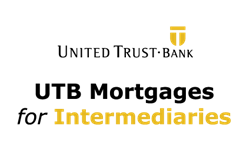Pepper Money
Net profit now accepted for Limited Company Directors
In case you missed it, our latest criteria update is designed to help more of your self-employed customers.
We can now use the latest year’s net profit within a limited company director’s business as part of our income assessment.
We’ll use the share of net profit in line with the customer’s share of the business. So, for example, a 60% shareholder would take 60% of the net profit figure. Where joint applicants have a combined shareholding of 100%, a 100% share of the net profit will be used.
Here’s how we reduce the barriers your self-employed customers face:
- We accept one year’s trading
- We’ll always use the latest year for affordability, not an average of multiple years
- We can now use salary & the share of net profit figure from the latest year, rather than salary & dividend
Self-employed customers just-off-high-street? Say hello to Pepper.
Whether it’s missed payments or lower credit scores, more of your customers who are just off the high street could benefit from a Pepper mortgage. Our reduced rates and recently enhanced criteria help your customers who don’t quite fit the high street.
- The situation: Sarah is a freelance graphic designer with variable monthly income. Over recent years, she has established a loyal customer base, and her accounts have shown year-on-year income growth.
- The challenge and solution: High street lenders may use an average of her last three years’ accounts for income, but we can base our affordability calculation on her most recent year’s accounts. Plus, we included Sarah’s use of her home as an office, and pension contributions to further boost affordability.
Want to find out more? Get in touch with your BDM for more details.

The Co-operative Bank
launching its new green purchase range
On Friday 18th October, we relaunched our mainstream and BTL product range, including a new green purchase range
- Purchase only products with distinct product code containing ‘AB’, to make the green products easy to identify
- Available on properties that have an Energy Performance Certificate (EPC) rating of A or B
- You will need to retain evidence of the property’s eligibility on your internal file, but you will not be expected to submit any evidence with the application.
Changes to Product Codes
We’ve seen an increase in applications being submitted with incorrect product codes, so we have added some further labelling to make each range easier to identify. You’ll now see ‘NB’ for new business products. Please continue to look out for further updates and thank you for your continued support.

Earl Shilton Building Society
Mortgage Criteria Changes
ESBS have receintly had several changes to criteria that are effective immediately.
- Capital Raising – This will increase to 85% LTV (from 75%) for purposes such as debt consolidation, gift, second property purchase, B2L deposit etc. However it will remain at 75% LTV for business related purposes
- Age – The maximum age for applicants on an interest only basis (where income is to be used) will increase to 85 to mirror those on a capital and interest basis
- Self-build – We do not allow interest only on properties with a Section 106 (to include agricultural ties). However we will allow interest only on these properties during the build-phase of a self-build to aid cashflow
- London and South-East – The current LTV restriction of 80% in London and the South-East will be removed so all parts of England and Wales will be the same
- Contractors – Contractors (where not classed as self-employed and to include CIS workers) will be acceptable without sight of accounts or tax returns where the following is met:
- They must be able to prove 12 months in the industry
- They must have been with the same employer for at least three months and have had no more than 3 employers in the previous 12 month period
- Gross income for income multiples is calculated at Hourly rate x 7 x 5 days x 46 weeks
- Net income for affordability (with tax and national insurance contributions deducted) would be an average of the last six months’ payslips
- Max loan £300,000
- Max LTV 75%
- VISAs – Provided at least one applicant has permanent rights of residency, then we can accept a spousal visa or pre-settled status for a second or subsequent applicant
- Sole Traders – Where accounts cannot be provided, we will accept the full tax returns instead
- Acceptable Warranty Providers – ABC+ has been added to the list

Gatehouse Bank
Buy-to-Let Top slicing for UK Expat and International residents now available
We are delighted to announce that we have made further changes to our Buy-to-Let (BTL) product range outlined below:
BTL Top slicing/Rental top-up
Our top slicing criteria is now available to UK Expat and International residents purchasing a BTL property (excluding HMOs/MUFBs) subject to criteria and underwriting.
Enhanced BTL Top Slicing/Rental top-up Calculator
Our Buy-to-Let Affordability Calculator has also been updated to include an Eligibility Assessment and can be found here. If you require this facility for your client, you MUST complete an assessment using our calculator and attach the completed results summary PDF when submitting an application.
BTL FSCR affordability
The minimum Finance Service Coverage Ratio (FSCR) has been simplified across all applicant types. Please see the table below:
| Applicant / Criteria | Top-slicing FSCR Individual | Top-slicing FSCR Limited Company | Minimum Income Top-slicing |
| UK Resident | 115% | 115% | £32,000 |
| UK Expat | 115% | 115% | £32,000 |
| International Resident | 125% | 125% | £100,000 |
You can speak to your local BDM and refer to our criteria guides for further information and eligibility here.
Our product range is available to UK residents, UK Expats, International residents and UK registered corporate entities looking to purchase property in England and Wales. Our full range of products can be found here.

Market Harborough Building Society
Bridging Specialist spotlight
Our Bridging Specialist, William Edwards, has many years’ experience in the short-term mortgage market. In our latest article, he explores the versatility of bridging finance, how these loans are increasingly being used as an alternative to traditional forms of finance and how it can help you.
Read more here – https://mhbs.co.uk/intermediaries/latest-news/your-bridging-building-society/
Bridging finance? We’re your experts.
We’re YOUR bridging building society. As the first mutual to offer bridging finance, we have lots of experience providing regulated and unregulated loans. Let us show you how flexible bridging finance can be:
- We lend between £200k – £5m and up to 70% LTV for simple and more complex cases, with interest roll-up for up to 12 months. HNW clients can also benefit from up to 60 months
- Bridging finance for many scenarios – such as downsizing, buying before selling, re-bridging and more
- Flexibility around the security and repayment strategy we accept
Whether you’re a beginner or a pro when it comes to bridging finance, our award-winning, dedicated team have the knowledge and experience to help you and your clients every step of the way, including keeping in regular contact with them throughout their term.
Get in touch on 01858 412345 (option 2) or visit https://mhbs.co.uk/intermediaries/products/bridging-solutions/.

Vitality
What are the changes?
Vitality have now introduced the latest enhancements for their Income Protection occupation changes. This means they now offer full Own Occupation Cover for all occupations including manual workers and those within the public sector.
Plus, a further 280 occupations now have access to 1 and 2 month deferred periods and Vitality are also widening cover by extending the expiry age to 70 for a further 22 key occupations such as nurses and teachers. This will open the protection cover to a wider audience allowing more people to take out Income Protection Cover with Vitality.

Mansfield Building Society
Easing the burden of borrowers after a Base Rate reduction
After almost a year since its last rise, the Bank of England Base Rate finally decreased from its recent high of 5.25% to 5.00% in August 2024. According to forecasters, another base rate cut could be on the horizon by the end of the year. While inflation has not yet reached the 2% target, it seems to be stabilising just above that level.

MPowered
Breaking down Labour’s Budget
We’re officially one week away from Labour’s first Budget!
Our experts will break down the key announcements, uncovering the changes and opportunities they present for your business and our industry. Join us for this live discussion next Thursday at 11am on LinkedIn and YouTube!
Unpack the Budget with industry pros:
- Andrew Montlake – Managing Director, Coreco
- Ken James – Managing Director, Contractor Mortgage Services
- Paul Kane – Head of Intermediary Distribution, MPowered
- Paul Purewal – Corporate Account Manager, Coventry Building Society
- Phil Leivesley – Director of Mortgages, LDN Finance
Add the event to your calendar and bring your questions along.

Buckinghamshire Building Society
the role for lenders and brokers in stimulating the green mortgage market
Carbon emissions from homes are one of the biggest challenges to achieving the UK’s net zero targets, accounting for around 20% of the country’s greenhouse gas emissions. The government’s climate advisers estimate that approximately £360 billion in public and private investment will be required to decarbonise homes by 2050.
The mortgage industry, particularly green finance, is viewed as crucial in encouraging homeowners to prioritise energy efficiency, whether they are purchasing a new home or upgrading an existing one. Over the years, lenders have introduced various green mortgage products offering incentives such as lower interest rates or cashback for buying energy-efficient homes or making energy improvements, commonly known as retrofitting. Retrofitting typically includes upgrades like new windows, better insulation, heat pumps, or solar panels to enhance energy efficiency.

Kent Reliance for Intermediaries
Complex ownership structure?
For ownership structures that aren’t run of the mill, you need a lender with the experience to help get your cases over the line. For instance, your customer could be:
- Purchasing their first buy to let or HMO
- Part of a newly formed limited company
- Transferring a portfolio from personal ownership to a limited company
Not every lender would be comfortable with taking on a complex ownership situation, but our flexible criteria allows for first-time landlords, limited companies and even newly formed SPVs and LLPs.
Other ways we can help:
- We can accept intercompany loans, shareholder deposits and director loans as deposits
- Up to four directors per application considered
- HMO properties with up to 20 bedrooms (up to six bedrooms considered for first-time landlords)
- We have no maximum loan size
So lets Talk:
We’re always here to talk through any cases that involve complex ownership structures. And whilst we have our standard criteria, it might be that we’re able to look outside of this too.
Get in touch with your business development manager, call our broker liaison team on 01634 838980 or use Live Chat to get the conversation started.
You can also read more about some of the different case types we’re able to consider here.

United Trust Bank
Mortgages with UTB, easy as 1, 2, 3!
With our 3 in 1 product set, it’s easy to get your ducks in a row.
As a broker, you are the key to helping customers to find the right mortgage, even when they don’t fit traditional high street criteria. That’s why we have brought all our mortgage products together under one roof, so you can offer residential, buy-to-let and second charge loans with less fuss.
Here’s how we can help you:
- Residential mortgages: Designed for customers with complex incomes, adverse credit and unusual properties
- Buy-to-let: Flexible criteria for individual landlords, portfolio landlords and limited companies
- Second Charge Loans: Enable your customer to access extra funds without changing their main mortgage
With our dedicated teams, expert support, effective service and online system, you’ll have everything you need to secure the right mortgage for your customers. Helping them to achieve their mortgage goals through the power of specialist mortgage lending.
Check out our productsand criteria guides here or call our lovely team today on 0207 031 1551 or email at mortgage.enquiries@utbank.co.uk.

The Cambridge Building Society
Exploring Income Types
We understand that mortgage affordability can be a challenge, but we’re here to help your intermediaries and their customers maximise borrowing ability, by reviewing the types of income that we will accept.
Our manual underwriting approach, enables us to look at:
- Second jobs up to 95% LTV with six months history
- Additional income types (allowances, commission, bonuses, overtime)
- Universal Credit
- Foster Carers Income up to 80% LTV
- Stipend/Bursary up to 80% LTV
- Undrawn pension pots
- Investment outcome
- Fixed term contracts
- Established lodger income
Employed Income
- Probation periods accepted and if below 80% LTV, we can complete whilst in probation
- We don’t require a minimum time in the primary job role
- Earned income considered up to the age of 75
Self Employed Income
- Share of net profit after tax and directors’ salary – two years self-employed evidence
- Latest year considered – where an increase is gradual
- Change in trading – one year’s full accounts to be provided
If you’d like more information on the income types that we accept, then please click here to view our full criteria.

LATEST BLOGS:
Vida Homeloans – The next generation of buy to let landlords waiting in the wings
Lisa Martin – Industry round-up October
Legal & General – Three tips for fracting ther ultimate protection strategy
Cirencester – Anne’s Story
Lisa Martin – Industry round-up September
Cirencester – The Income Protection Professionals





